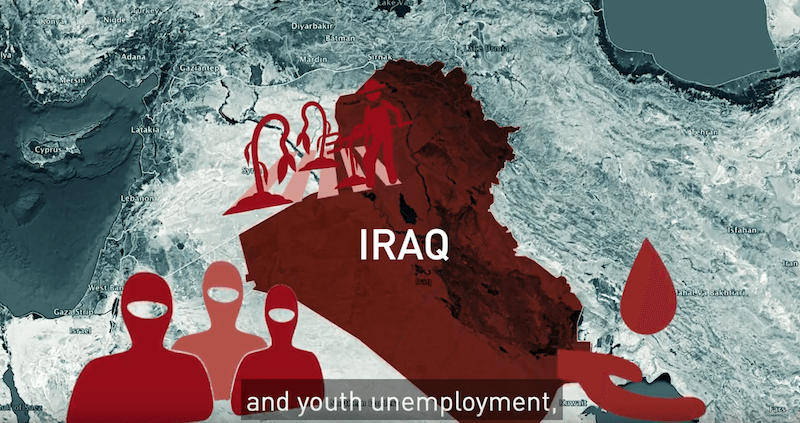The Hague Declaration encourages investment in rebuilding vital water infrastructure and stabilisation and humanitarian efforts which promote access to potable water and basic sanitation. The HD also stresses the need for long-term approaches to water security which factor in climate change. This requires strengthening existing local and national institutions for water management, improved knowledge management and building on existing efforts to foster cooperation on transboundary river resources. These steps are a fundamental component of any stabilisation and peacebuilding strategy.
Action Area 6
Supporting Sustainable Water Strategies in Iraq
Decades of armed conflict, conflicts over transboundary water use and the increasingly palpable impacts of climate change are factors contributing to Iraq’s current water crisis. To ensure sustainable development and lasting peace in post-conflict Iraq, access to basic water infrastructure, in addition to climate-sensitive and long-term water strategies, are crucial. The significance of establishing a better water infrastructure was sadly demonstrated during the heat wave in summer 2018. Protests in the southern city of Basra also demanded better provision of public services such as potable water – underlining the link between climate stress and poor governance. This highlights citizens’ expectations that the government should rebuild water infrastructure to ensure access to potable water and sanitation. This approach could pave the way to long-term approaches for Iraq’s water resource management.
![Photo by Spc. Charles Gill/DVIDSHUB/flickr [CC BY 2.0]](/sites/default/files/2019-02/area6_0.jpg)
![Landscape in central Iraq. | Photo by Adam Lynch/flickr [CC BY-SA 2.0]](/sites/default/files/2019-02/Al%20Taqaddum%2C%20Iraq.jpg)
Overview of progress made on Action Area 6
Despite the standstill in the political process in Iraq, government actors are committed to implementing actions to improve water security.
For example, the Ministry of Water Resources of Iraq showed political willingness and requested an assessment of Iraq's Strategy for Water and Land Resources from the Dutch government. During the UN Security Council debate on climate-related security risks, brought forward by the Swedish government in July 2018, Iraq’s Minister of Water Resources, stressed the impacts rising temperatures and competition for water resources have on the stability of the region.
Action on water strategies in Iraq has been encouraged by signatories of the Hague Declaration, for example through providing assessment and facilitating dialogue, including a meeting in Brussels organised by the PSI to discuss potential EU action to support water resource management in Iraq. But there is still scope for more attention, funding and engagement in this area.








